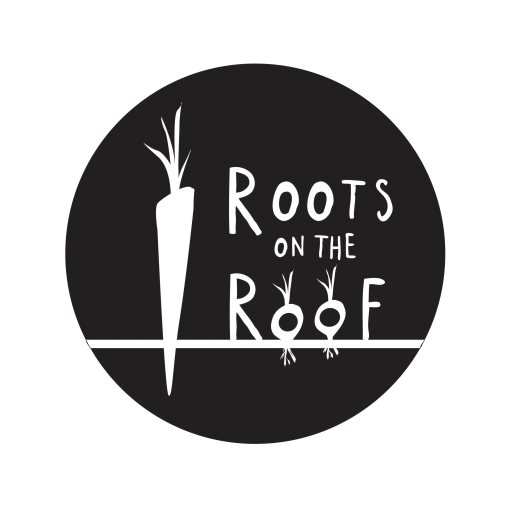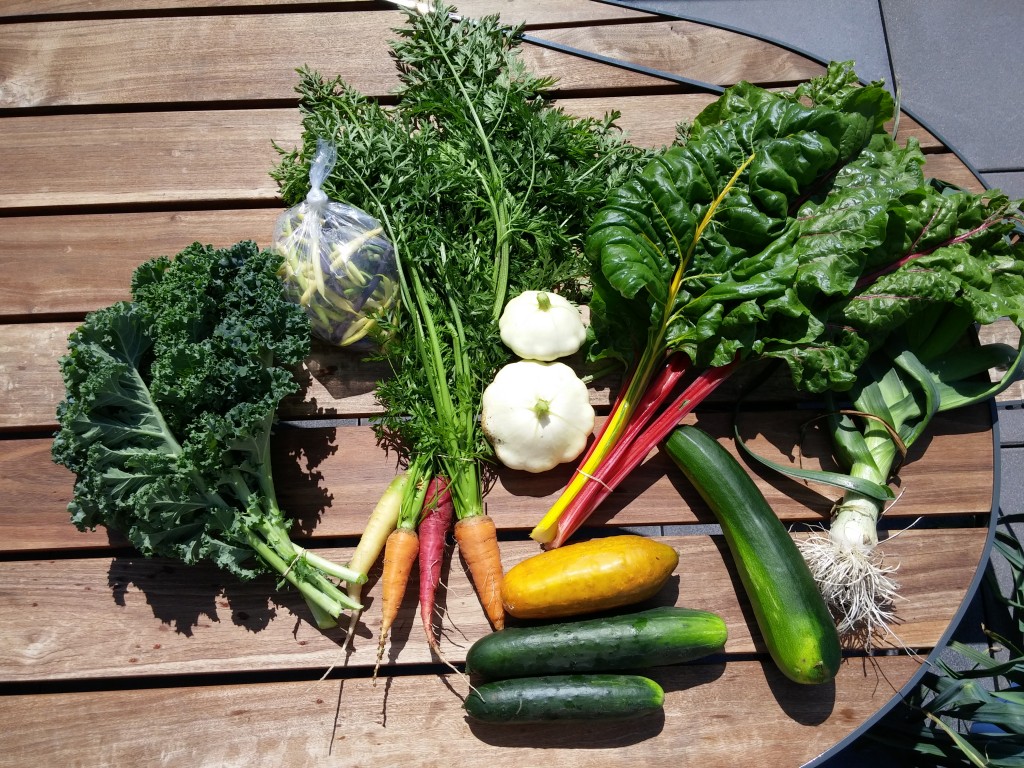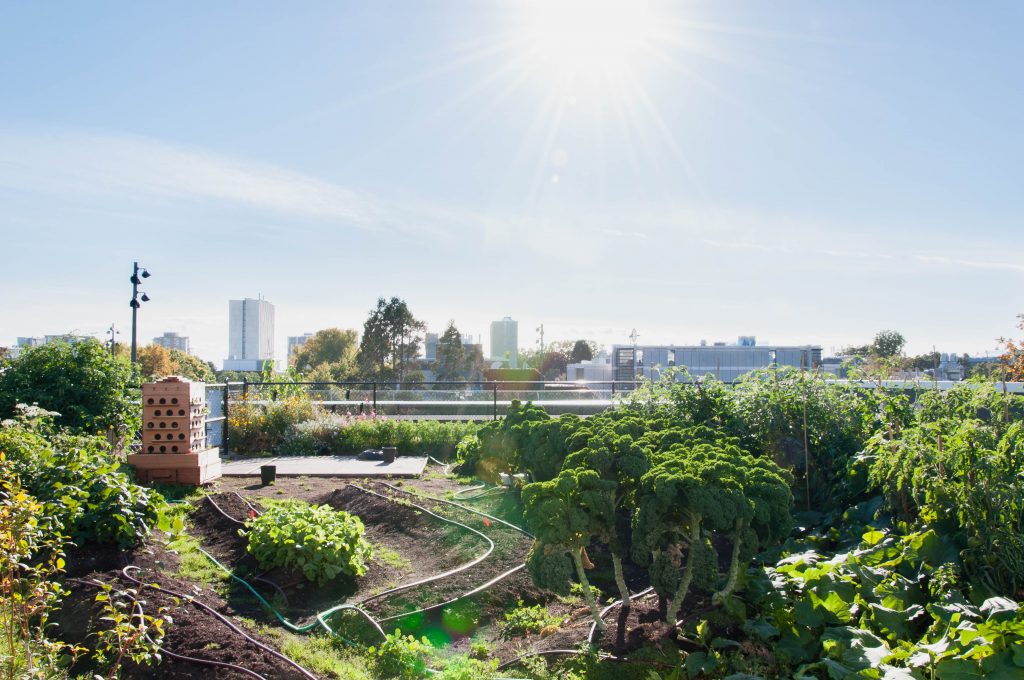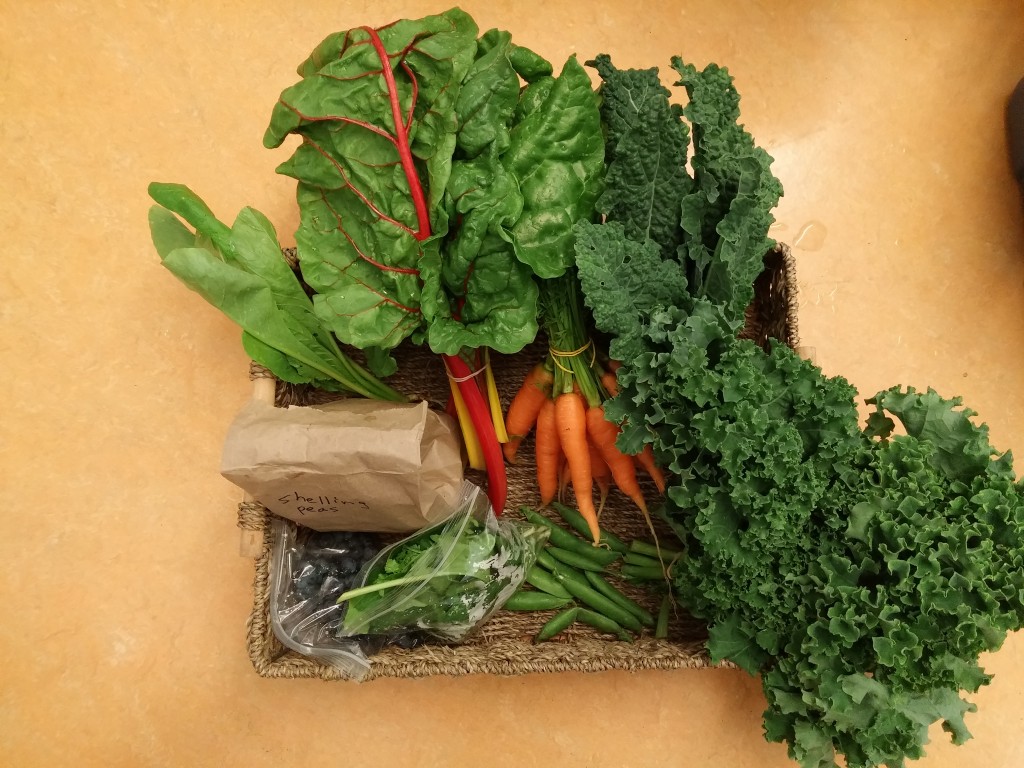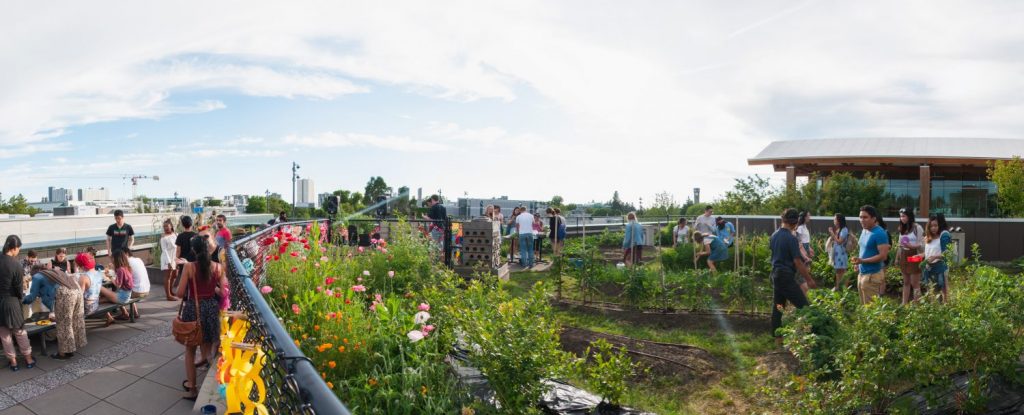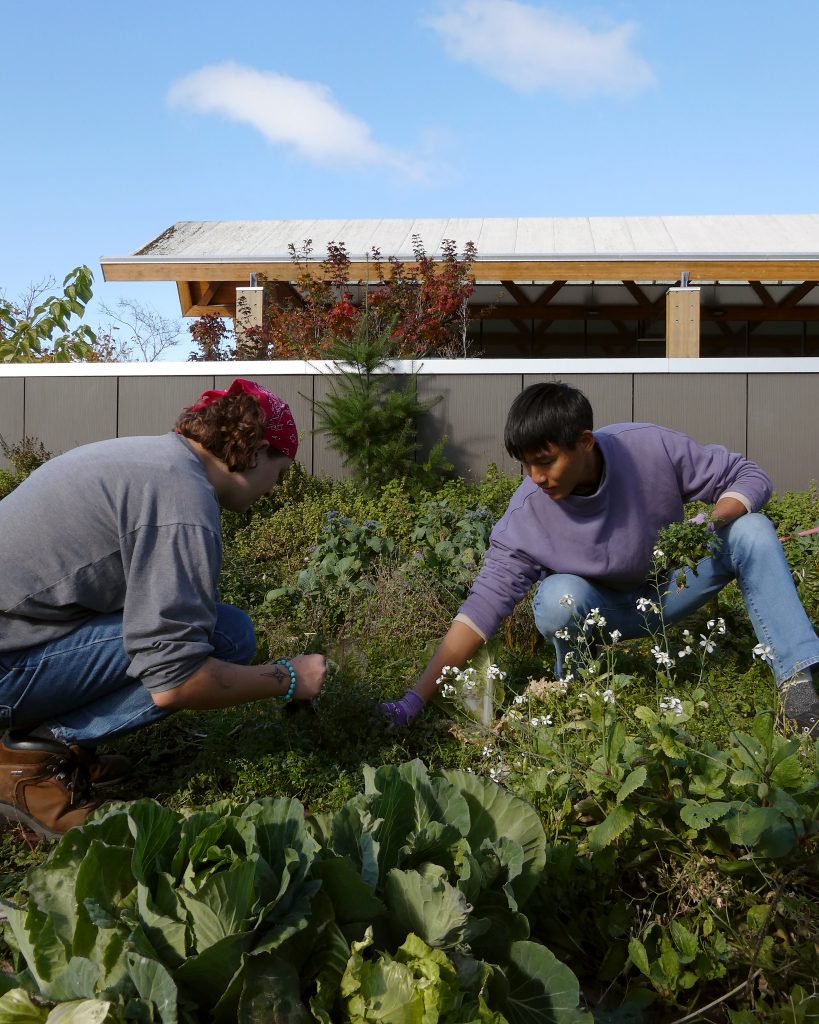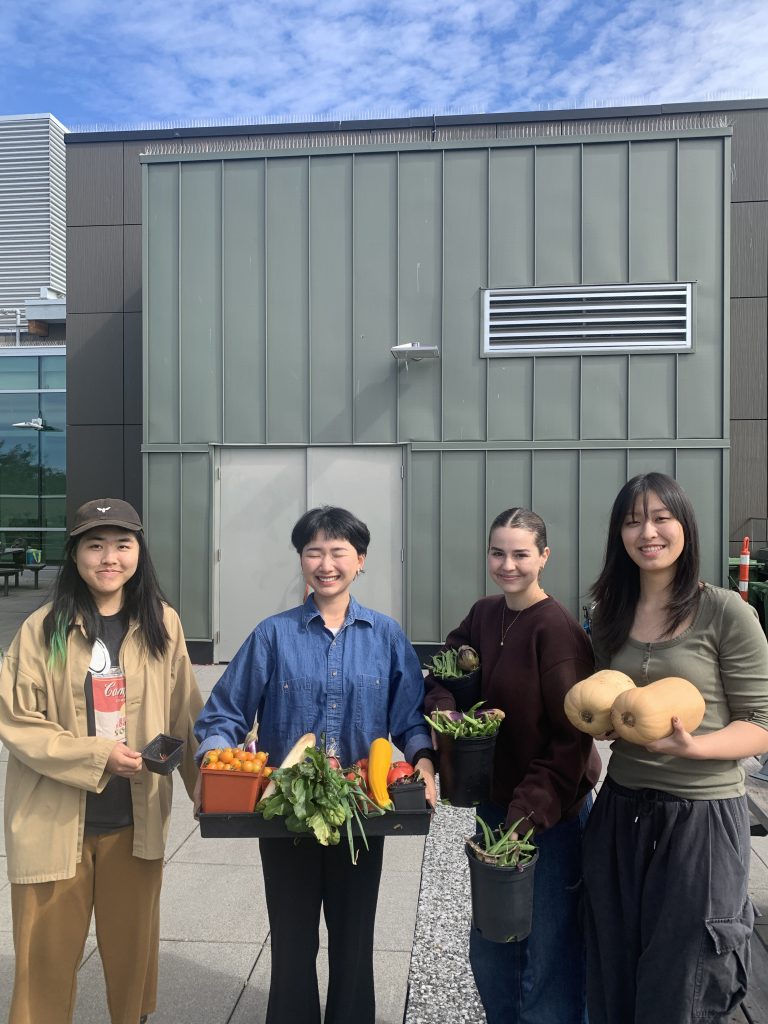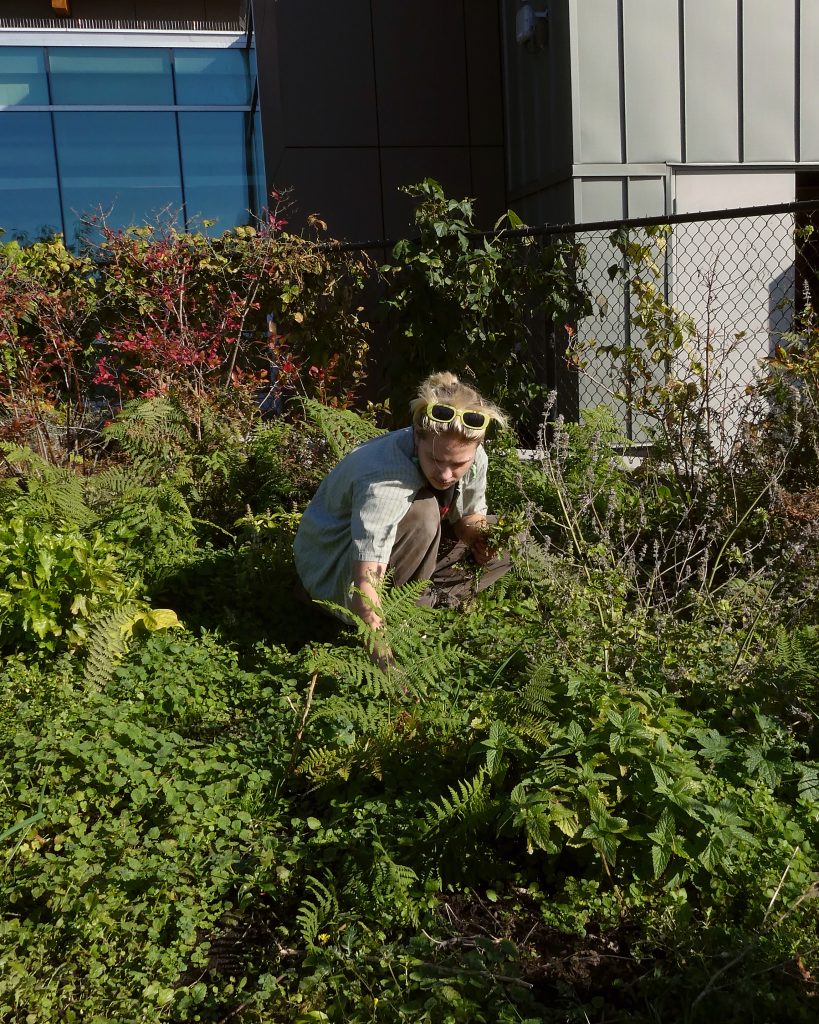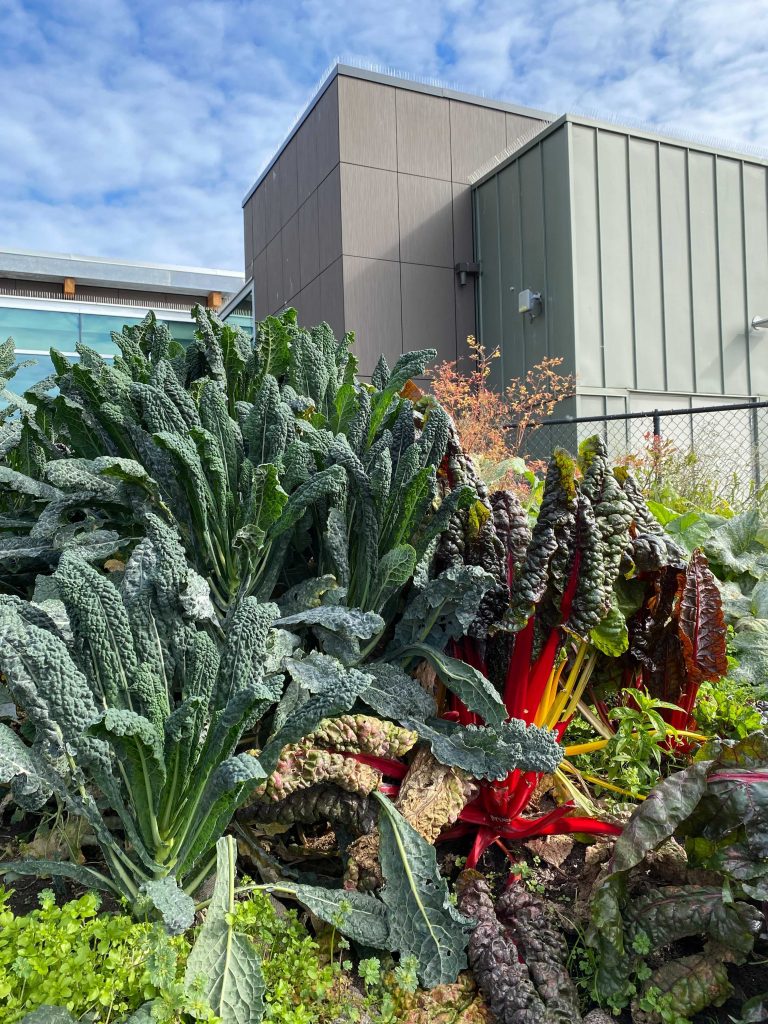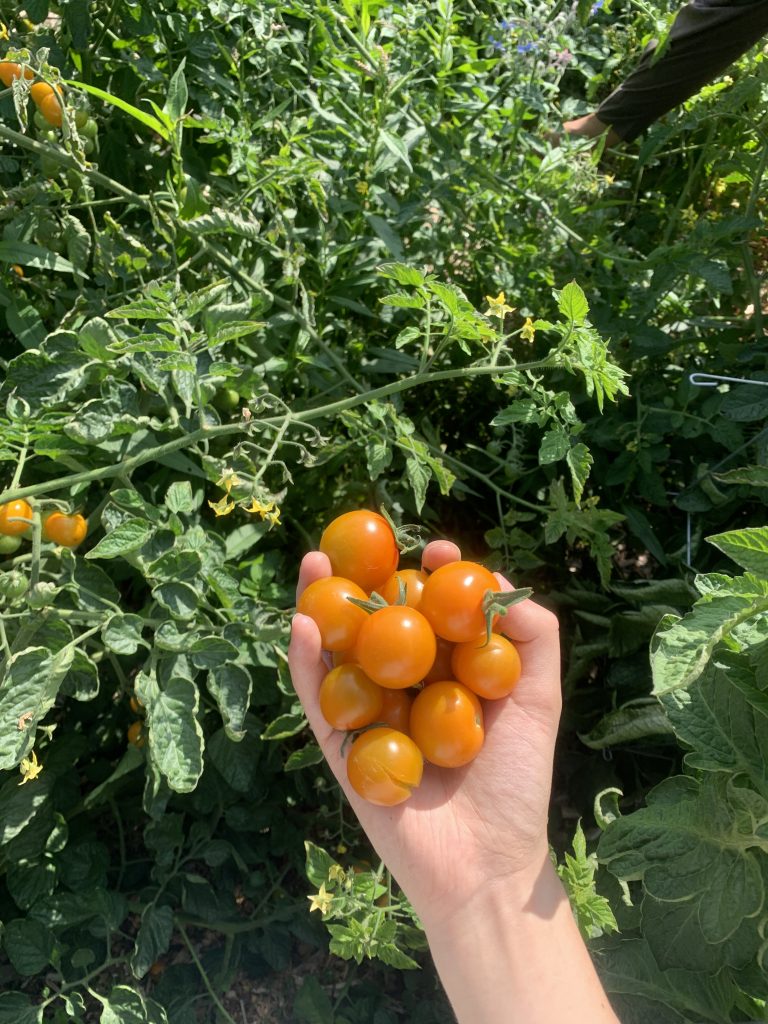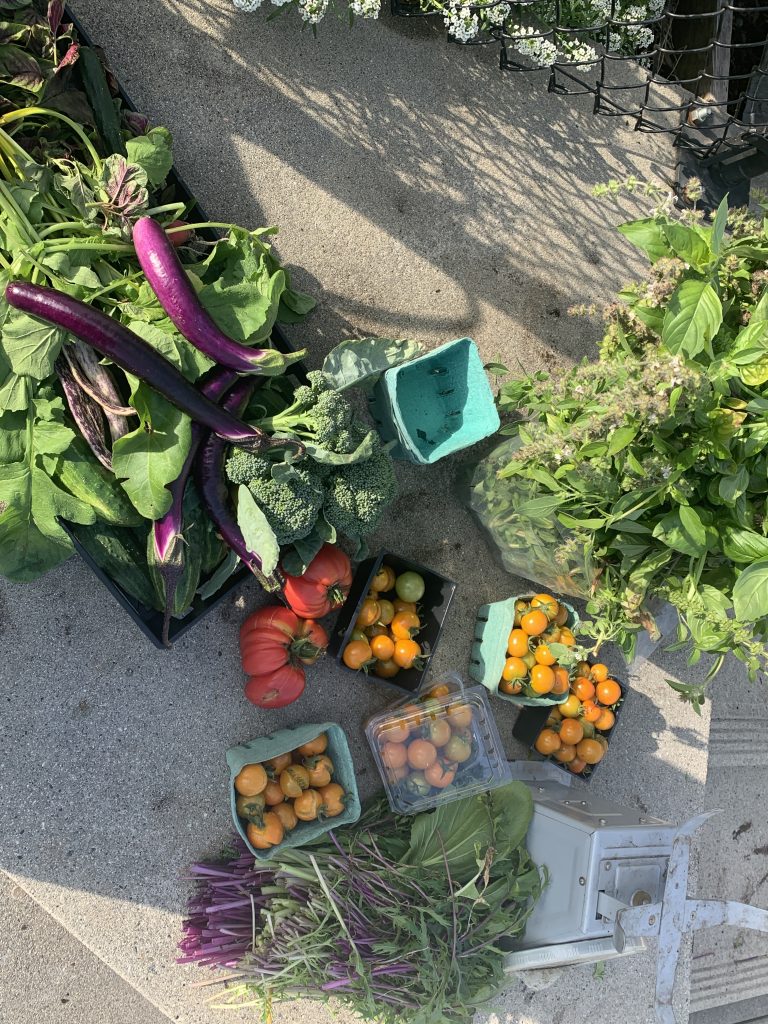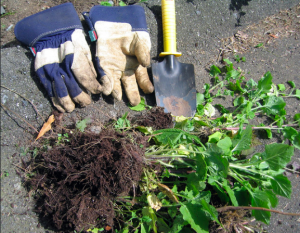Don’t forget to weed and water your garden! When weeding, make sure to remove the roots so they don’t just re sprout. Different crops have different water requirements, but most mature plants won’t need to be watered every day. Just give them a drink on particularly hot days and keep an eye out for wilted leaves. Where possible, use rain water at the base and avoid getting their leaves wet. Leaves exposed to moisture become susceptible to disease, and chlorinated tap water can have adverse affects. Your plants will still appreciate tap water on a hot day but using a barrel to collect rain water is preferable. Avoid using a sprinkler to water your garden and stick to drip irrigation or administer water directly to the ground under the leaves. Many crops also benefit from being mulched, which suppresses weed growth while retaining moisture.
Also keep an eye out for pests- it’s best to catch damage and infestation early. Fences will keep out deer, and enclosing plants as needed in wire mesh will keep rodents at bay. Hungry animals and some insects can also be deterred by cayenne pepper either sprinkled around the base of plants or soaked in water and sprayed on the leaves. Always opt for non toxic methods like oil sprays, insecticidal soaps, sticky traps, and row covers where possible. For best practice, avoid touching your plants when they are wet after rain, as you risk transferring foliar diseases from plant to plant on your hands.
It’s also good practice to rotate your crops each year. This means if you plant beans in a certain area, you don’t plant them there again for at least three years. This helps maintain the soil so it can support more plants and produce more nutritious veggies. The most simple approach to crop rotation is to divide your plants into four groups: legumes, root vegetables, fruits, and leafy greens. If you plant a legume in a given plot, plant leafy greens in that area the next year, then rotate to a fruit, then to a root vegetables, and then go back to legumes. By fruit, we are referring to the botanical definition, so any plant who’s edible part contains seeds. This means that tomatoes and cucumbers should be considered fruit when planning your crop rotation.
